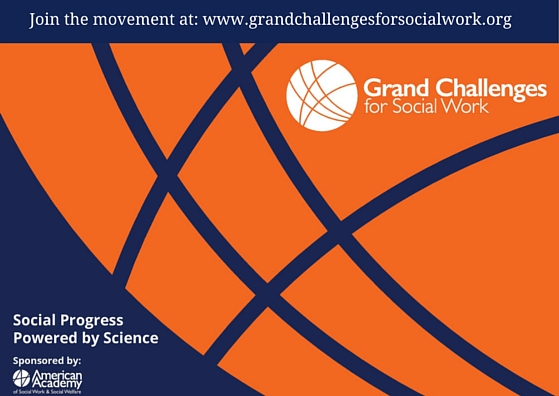The Grand Challenges for Social Work

On January 14 at the Society for Social Work and Research (SSWR) annual conference, the American Academy for Social Work and Social Welfare (AASWSW) announced the Grand Challenges Initiative. This initiative aims to invigorate social progress by using science and research to crack the most serious societal ills that social work can — and should — address.
The Grand Challenges demand collaboration and innovation in the field of social work, and the University of Southern California School of Social Work is excited to be involved. USC’s John Brekke, the Frances G. Larson Professor of Social Work Research, has had an integral role as the chair of the Grand Challenges Executive Committee, providing guidance in the development of the challenges that will guide our social work community in solving today’s problems.
What Are the Grand Challenges?
The Grand Challenges are ambitious but achievable goals that harness science, technology and innovation to bring about transformative, lasting social change. The Grand Challenges define a bold, science-based social agenda focused on improving individual and family well-being, strengthening our social fabric, and creating a more just society.
Individual and Family Well-Being
- Ensure healthy development for all youth
- Close the health gap
- Stop family violence
- Advance long and productive lives
Stronger Social Fabric
- Eradicate social isolation
- End homelessness
- Create social responses to a changing environment
- Harness technology for social good
Just Society
- Eliminate racism
- Promote smart decarceration
- Reduce extreme economic inequality
- Build financial capability for all
- Achieve equal opportunity and justice
Why Is This Important?
AASWSW President Richard Barth, who is also the dean of the University of Maryland School of Social Work, said the Grand Challenges initiative will help highlight the important work social workers are doing.
“It’s an opportunity for our field to square its scientific and social justice aspirations and to communicate more effectively within the profession and to other professions and the general public about what social work is working on, what its capacity is, what its needs are to solve important problems, why it’s a fascinating and compelling field to be a part of, and what important advances to our quality of life could occur with advances in our social work science,” Barth said.
Become part of the conversation — use #Up4theChallenge on Facebook, Twitter and other social media sites.


